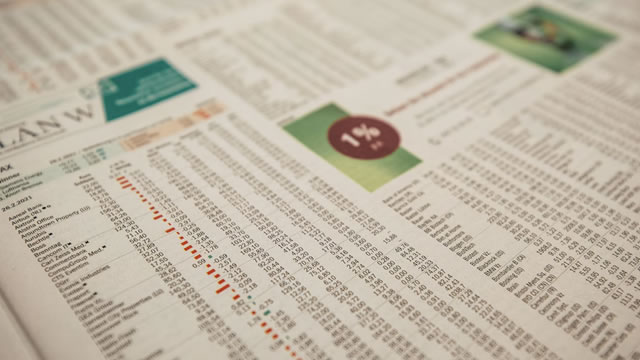Drifting Away from Tariffs: A New Economic and Financial Frontier
As the global economic landscape continues to evolve, so too do the intricacies of economic policy. While tariffs have long been a topic of debate and discussion, it’s important to consider the ripple effects these protectionist measures have on the economy and financial markets.
The Consumer Sentiment Conundrum
First and foremost, let’s address the elephant in the room: consumer sentiment. Protectionist economics, such as tariffs, have a tendency to diminish consumer confidence. Why, you ask? Well, imagine this scenario:
- Tariffs are imposed on imported goods, leading to higher prices for consumers.
- Higher prices lead to a decrease in purchasing power for consumers.
- Decreased purchasing power can result in a decrease in overall consumer spending.
- Lower consumer spending can lead to decreased economic growth.
It’s a vicious cycle, isn’t it? But don’t despair, dear reader! Let’s explore this from a financial market perspective.
Financial Markets: The Unseen Victims
Tariffs can have significant impacts on financial markets as well. Here’s a peek into the world of stocks, bonds, and currencies:
Stocks:
Tariffs can lead to increased volatility in the stock market. Companies that rely heavily on imported goods or export their products may experience significant financial losses due to tariffs. This, in turn, can lead to decreased stock prices and investor uncertainty.
Bonds:
Bonds, on the other hand, can be influenced by tariffs in a more subtle way. When economic uncertainty arises, investors often turn to the safety of bonds. This increased demand for bonds can lead to higher bond prices and lower yields.
Currencies:
Lastly, tariffs can have a significant impact on currencies. When tariffs are imposed on imports, the affected country may experience a decrease in demand for their currency. Conversely, the country imposing the tariffs may see an increase in demand for their currency.
How Will This Affect Me?
As a consumer, you may experience higher prices for goods and services due to tariffs. This can lead to a decrease in purchasing power and, ultimately, a decrease in overall consumer spending. As an investor, you may face increased volatility in the stock market and decreased yields on bonds.
How Will This Affect the World?
On a global scale, tariffs can lead to decreased economic growth due to decreased trade and decreased consumer spending. This can have far-reaching impacts on industries, countries, and even entire regions. Furthermore, the financial markets can experience increased volatility and uncertainty, which can lead to decreased investor confidence and decreased economic growth.
In Conclusion
As we venture further into the world of protectionist economics, it’s crucial to consider the ripple effects these measures have on the economy and financial markets. From consumer sentiment to financial instruments, the impacts are far-reaching and complex. So, dear reader, keep an eye on the economic horizon and prepare for the unexpected!
And remember, in a world filled with uncertainty, knowledge is your most powerful tool. Stay informed, stay engaged, and stay curious!





